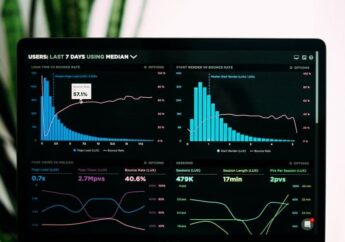Creating a Data Platform? Build a Data Strategy First!
by Arnab Dey Information Technology 04 January 2022

A data platform is a comprehensive solution for managing and analyzing data. It encompasses all the elements needed to collect, store, process, share, and query data across an organization. If you’re looking to understand your customers better, get ahead of the competition by creating a data platform.
A data platform provides you with the tools and resources to access, store, and manage all of your business’s valuable datasets in one place. It also helps the business reduce costs, improve collaboration between departments and stakeholders, and increase efficiency. However, before building a data platform, you need to build a data strategy first.
Data Strategy is tied with Business Objectives
Tying together a data strategy with business objectives is becoming more important today. The shift is because more businesses are looking to move away from traditional models primarily focused on selling products and services to customers.
Instead, companies want to know what customers want now and what they will want in the future. As a result, businesses build a data strategy to help them realize their objectives by providing the required information for decision making and strategy formulation and implementation.
Build a Data Strategy for Better Decision Making

A shared data strategy allows everyone to see how analytics can benefit the enterprise by improving the decision process. Data strategy also ensures all relevant stakeholders know data analytics, such as customer acquisition or cost reduction.
When you build a data strategy, it serves as a bridge between business users who require analytical insights and IT teams who control the whole process of gathering, storing, and transforming data. Having a sound data strategy also ensures that decisions are based on reliable information, which leads to greater accuracy and better-informed decision-making.
Centralizing and Standardizing Data Functions
Data strategy is a crucial component in the world of data and analytics. Data strategy helps to centralize and standardize all data functions and operations. Centralization is crucial because, without it, organizations tend to have disconnected, disjointed data sources that do not work together efficiently or effectively.
A data strategy helps ensure that users have access to the right information for their needs at the right time. This makes it easier for users to make decisions with confidence and act on them faster. With a sound data strategy in place, users can access relevant information quickly when they need it.
Better Risk Management
Data analytics helps the risk management function by collecting, storing, and analyzing data. The objective is to support and enhance the decision-making process by providing a more comprehensive view of risks. Data analysis can help an organization understand its weaknesses and strengths and the risks that surround it.
When you build a data strategy, it helps identify opportunities for growth and development. In addition, data strategy gives information about specific risk profiles, which may help determine insurance costs.
Build Your Data Strategy Today

Data strategy is about making better decisions. It is about delivering actionable insights that can help organizations make critical decisions, such as adjusting to an evolving market or responding to a rapidly changing consumer environment.
By implementing a data strategy, your company can take advantage of its valuable information assets, enabling decision-makers to use the data to make more informed decisions faster and with less risk.
Additional reading:







































































































